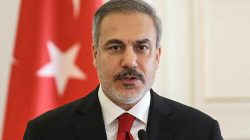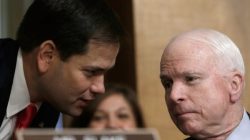Strategic Engagement: White House Luncheon with African Leaders
President Donald Trump is set to host a luncheon at the White House, bringing together the heads of state from Gabon, Guinea-Bissau, Liberia, Mauritania, and Senegal. This gathering aims to explore commercial opportunities that could benefit both the American people and their African counterparts. The event reflects the administration’s growing focus on expanding trade and private investment in Africa, marking a significant shift from traditional development assistance approaches.
Shared Interests and Diverse Backgrounds
The selected countries share commonalities in their strategic importance for countering violent extremism in West and Central Africa. These nations are perceived as critical in preventing the spread of terrorism from regions with high impact, such as the Sahel, to areas with lower risks. However, they also exhibit notable differences. Four of the five countries maintain diplomatic relations with Israel, while Mauritania does not. Additionally, there is a wide variation in military expenditure as a percentage of GDP, indicating differing capacities for independent counter-terrorism operations.
Addressing Concerns and Opportunities
Despite these differences, none of the invited countries have been labeled as “worst offenders” by the U.S. government in terms of trade relationships. However, some face specific challenges, including concerns about overstay rates among nonimmigrant students and exchange visitors. For instance, Gabon and Liberia have high overstay rates, raising questions about why these countries were chosen for the meeting, especially given recent actions taken against Burundi and Sierra Leone due to similar issues.
A Focus on Trade and Investment
The White House provides an opportunity for these nations to enhance their trade and investment ties with the United States. The Trump administration has emphasized a “trade not aid” approach, prioritizing economic growth through expanded trade and private investment. This strategy is reflected in the Department of State’s focus on commercial diplomacy, with chiefs of mission evaluated on their ability to advocate for market reforms and facilitate new commercial opportunities.
This approach could help visiting leaders strengthen U.S. ties through commerce and investment, potentially demonstrating a more effective strategy than previous administrations. To achieve this, the administration must showcase tangible results, such as market expansion for U.S. companies and increased investments from African partners.
Strategic Priorities and Controversies
The administration is also looking to reinforce its whole-of-government priorities, which may include greater use of U.S. maritime industries, access to critical mineral resources, and increased exports of American coal and natural gas. These initiatives, while potentially controversial, align with Trump’s campaign promises and his administration’s goals.
Preparing for the Meeting
To avoid tensions experienced during the recent visit by South African President Cyril Ramaphosa, the leaders should address any immigration and travel-related concerns. This includes overstay rates, information-sharing cooperation, and public safety risks. They should also tackle concerns about unfair exploitation of American companies and strategic competition with countries like China, Iran, or Venezuela.
Bringing concrete commercial and investment proposals to the table is crucial. Trump’s focus is on delivering demonstrable progress, particularly ahead of the 2026 midterm elections. Building rapport and signaling readiness to strike deals will be essential for the success of the meeting.
Conclusion
The White House luncheon represents a significant opportunity for these African nations to engage with the Trump administration on trade and investment. By addressing potential concerns and presenting viable proposals, the leaders can leverage this meeting to foster stronger economic ties and demonstrate the benefits of a commerce-driven approach to international relations.







